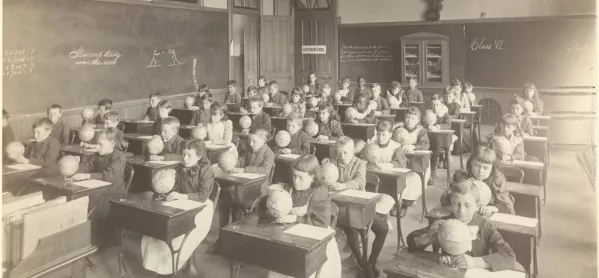Recent education reforms have taken England’s schools system back to the 19th century, a leading academic argued this evening.
Professor Stephen Ball, of the UCL Institute of Education, said that the patchwork system which has grown up in England is “rickety, divided and unfair”.
He used a lecture at the British Academy to say that the way schools are organised now increasingly resembles the system that existed before 1870.
“Rather than [an education] system, we have - and have had since its inception - a rickety, divided, unstable and unfair - but nonetheless overbearing - educational apparatus,” the professor of sociology of education said
He said that the state has interfered in English education both too much and not enough, perpetuating inequalities in provision and quality.
Before 1870, when local school boards were introduced, schools were run by a mixture of church societies, voluntary organisations and philanthropists.
Professor Ball, who is also a fellow of the British Academy, argued that this mirrors the “patchwork” of providers running state schools today, and the growing number of academies which do not fall under local authority control. At least nine different types of state schools currently operate in England, from academies and free schools to community schools and grammars.
“The sort of school your child may attend, and their experience of education, depends on where you live”, Professor Ball said.
He argued that the “relation between performance and poverty…is far stronger than the relation between schooling and performance” despite the introduction of new schools supposedly targeted at areas of disadvantage.
“We need to start again, not tinker and reform, add and complicate, but start somewhere else,” he said.
Professor Ball said that to tackle the relationship between education, inequality and poverty “we might want to seriously consider a return to directly-elected local school boards.” These boards would have local responsibility for educational planning and spending and ensuring access and equity - with the DfE reverting to its earlier role as an advocate for educational spending at a national level.
The lecture was sponsored by Sir John Cass’s Foundation and was chaired by Professor Maggie Snowling, President of St John’s College, Oxford.
A Department for Education spokesperson said: “Academic standards are rising, with 1.9 million more pupils now in schools rated good or outstanding than in 2010 and nine out of ten schools given this rating at their latest inspection. It is important to have an assessment system that continues to drive this improvement but we are clear that no school should be judged on one piece of school performance data alone.
“There are a record number of teachers in our schools - 15,500 more than in 2010 - with 32,000 trainee teachers recruited last year.”
Want to keep up with the latest education news and opinion? Follow Tes on Twitter and Instagram, and like Tes on Facebook




